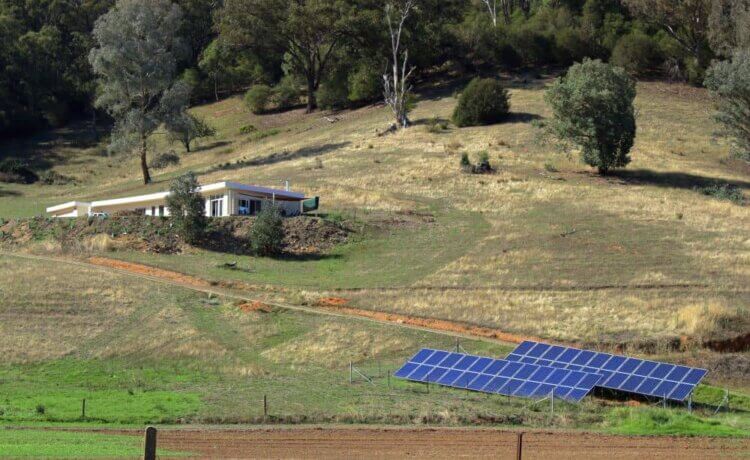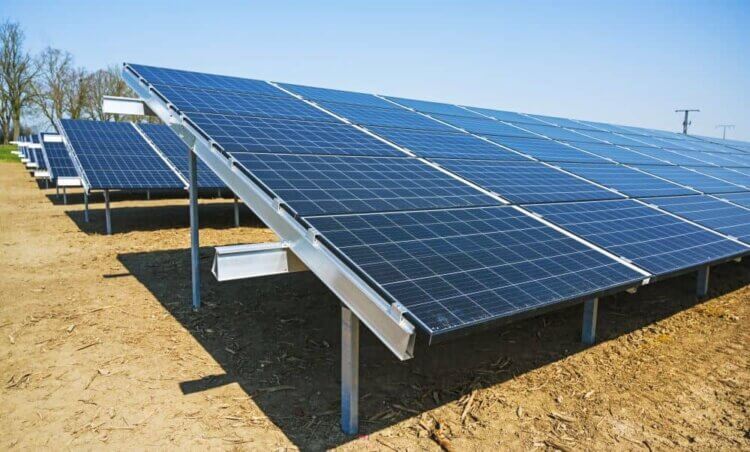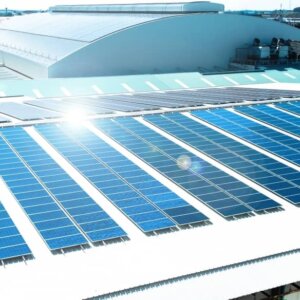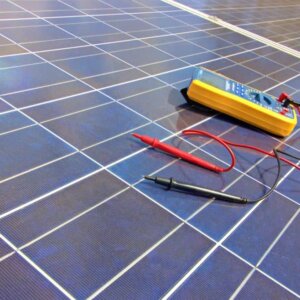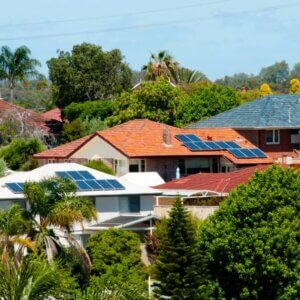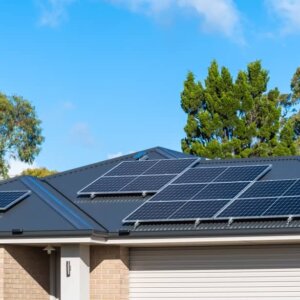Are you interested in off-grid living in Australia? Australians are switching to solar power at an incredible rate, with one out of every five homeowners in Australia running on solar.
Whether you are buying a home, building off-grid, or looking to convert your current on-grid solar system to off-grid, we’ve put together a guide to the pros and cons of going off-grid to help you decide if off-the-grid living is right for you.
Pros of Off-Grid Solar
Going off-grid with solar power offers a variety of benefits. Here are some of the main advantages of building off-grid:
- No Blackouts — Power out? While everyone else may be without electricity, your off-the-grid home will still have power. This is especially beneficial for individuals with health conditions that need refrigerated medications.
- Independence — By going off-grid, you gain complete independence from the utility company and never have to worry about rate increases again.
- No Electricity Bills — Going off-grid with solar means you will no longer have to send monthly paychecks to the utility company. With the steadily increasing cost of electricity, it is a great time to get rid of your electric bills.
- Decreasing Costs — The cost of off-grid solar and battery storage costs have significantly declined, making an off-grid solar system more affordable than ever. The increasing number of brands entering the solar market and the growing interest in renewable energy have driven the cost of solar panels and batteries down.
- Flexibility — Imagine being able to live just about anywhere you want. An off-grid solar system can help you do just that. Without the limitations of needing to connect to main power, your dreams of building off-grid and generating your clean energy can be achieved. By going off-grid with solar panels, batteries, and a backup generator, you can be completely self-sufficient.
- Long-Term Savings — Instead of paying to have to connect to the main power supply, you can invest in an off-grid solar system. Although both options require an initial investment, solar power solutions offer ongoing, long-term savings.
- Environmentally Friendly — Solar power generates clean, renewable energy that is environmentally friendly and can significantly reduce your carbon footprint.
- Self-Sustainable Lifestyle — If you enjoy harvesting your food from your garden, gathering eggs from your free-range chickens, and capturing rainwater, an off-grid solar system will give you the same sense of satisfaction. Going off-grid allows you to live a completely self-sustainable lifestyle by generating your clean energy and running a self-sufficient homestead.
Cons of Off-Grid Solar
While off-the-grid living offers many benefits, there are some cons of off-grid solar to be aware of. Here are some of the reasons Australian homeowners decide against off-grid living:
- Higher Up-Front Cost — To fully disconnect from the power company, you will need to add a battery bank and a backup generator, both of which increase your initial costs. However, the cost of going completely off-grid can still end up being lower than connecting your property to the grid and paying ongoing electric bills.
- Space Limitations — Going off-grid will require significant unshaded space to support a self-sustainable solar system.
- Maintenance Costs — While off-the-grid living can save you a significant amount on energy bills, there will be occasional routine maintenance costs if you need to replace a component or buy fuel for your generator. Our support continues long after the installation process, so if you have questions about maintenance, we’ll be here to help.
- Limited Solar Energy Storage — Even with a backup power source, energy storage is limited with off-grid solar. If you experience cloudy days or consume too much energy, you run the risk of running out of stored electricity.
When going off-grid, you’ll need to be aware of how much energy you are consuming to avoid running out of power. Even if your system meets your typical day-by-day energy needs, you’ll have to prepare for usage spikes from having guests over, lifestyle changes, or adding a family member.
Is Going Off-Grid Right for You?
During the initial set-up phase when building off-grid, you’ll want to consider various factors, including:
- The size of your property
- How much sun does your property receives
- Any trenching or cabling requirements
- Maintenance requirements
- Your energy demands and living habits
- Future changes to lifestyle
- The location, weight, and size of an off-grid system, along with placement of generators, batteries, inverters, hardware, etc.
Our professional solar experts can help you calculate your energy needs, analyse your space, and evaluate your property to help you decide if going off-grid is right for you.
Want to Learn More About Going Off-Grid With Solar?
If you are interested in off-the-grid living in Australia, please contact our team of solar experts. We’ll help you understand the pros and cons of going off-grid, explain all the options, compare technologies, and help get you started with off-grid living. We would be happy to answer any questions or set up a free consultation to evaluate your property.

